-
The Lifecycle of Recycled Paper
Paper products surround us throughout our days, and we may not think about what happens to paper after it is tossed in the recycling bin. In this video, you will take a look at some amazing recycling facts about paper. In the past 26 years, the United States alone has recycled 1 billion tons of paper. When you purchase recycling bins in Atlanta, you can rest assured that your waste management company will send your paper goods to the correct recycling facility.
A recycling company will bring your paper waste to a mill for processing. At the mill, the paper will be shredded into a product that is known as pulp. Next, this pulp will be sent to the recycling center so that it can be transformed into new paper items. When you purchase a paper item, chances are that it has been manufactured from recycled consumer waste.
-
What to Know About Recycling Ferrous Materials
Do you make it a habit to recycle near Atlanta ? If so, then you might benefit from learning about recycling ferrous materials.
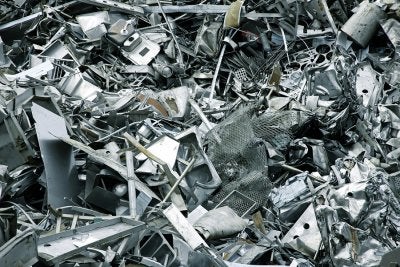
Ferrous and Non-Ferrous Metals
Scrap metal recycling involves collecting and sorting different metals, and then processing each type, and many people consider the scrap metal recycling industry to have 2 primary categories: ferrous and non-ferrous metal recycling. Ferrous metals are those that contain high amounts of iron, such as iron and steel. Some examples of non-ferrous metals include aluminum, stainless, steel, brass, bronze, and copper. Because of its molecular structure, iron has a much higher melting point than other metals. For this reason, not all metal recycling facilities are equipped to recycle iron, and many locations that do have different areas designated for ferrous and non-ferrous metals.
The Value of Ferrous Metals
Compared to metals like brass and copper, steel and iron aren’t particularly lucrative items to recycle. However, it’s worth bringing steel and iron with you to the scrapyard or putting it in the recycling bin, since doing so can lower your carbon footprint, reduce the amount of new ore that is mined, and keep the scrap metal out of a landfill. Steel is among the most commonly used metals worldwide, rusts easily, and attracts magnets. A magnet will also stick to iron.
The Ferrous Metal Recycling Process
The ferrous scrap metal recycling process begins with collection through residential, commercial, and industrial recycling programs. Next, the metal is brought to a recycling center where the different metals are sorted. To identify ferrous from non-ferrous metals, the scrap pieces pass beneath a magnet. Ferrous metals stick to this magnet, while non-ferrous metals remain on the conveyor. Then, the scrap metal is shredded and pressed into cubes to make it easier to process and transport. Once the ferrous metal cubes reach the smelting facility, they are melted into liquid molten metal and poured into molds to create ingots. Finally, the ingots are sold to industries to be used to fabricate new materials.
-
Spotlight on Non-Ferrous Metal Recycling
All recyclable materials have their worth, but non-ferrous metals are particularly valuable. If your company produces scrap metal or if you are interested in the effects of recycling on the environment, then you can benefit from learning more about non-ferrous metal recycling near Atlanta.
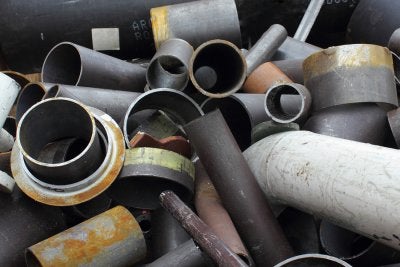
What are non-ferrous metals?
Non-ferrous metals include copper, zinc, tin, nickel, aluminum, lead, gold, silver, platinum, and others. The metals in this category do not contain iron, are non-magnetic, and are more resistant to corrosion than ferrous metals. Of all the recyclable materials, non-ferrous metals are among the few that do not break down or lose their physical or chemical properties during the recycling process, meaning that they can be reused an infinite number of times without changing in composition. These characteristics make non-ferrous metals incredibly valuable recycling materials.
What items are made from non-ferrous metals?
A large amount of the non-ferrous metal that is recycled in the United States comes from industrial waste resulting from the production of goods like cars and appliances. Some examples of industrial sources of non-ferrous scrap metal include automobile batteries, radiators, boats, window frames, airplane parts, aluminum siding, pipes, and electrical wires. As a consumer, you might find yourself recycling these metals in the form of soft drink cans, packaging materials, cookware, cutlery, batteries, tin cans, and door knobs.
How are non-ferrous metals recycled?
If referring to volume, then non-ferrous metal recycling doesn’t account for much of all recycled materials in the United States. However, in terms of scrap metal, non-ferrous metal scrap made up more than 50% of total scrap recycling industry earnings in the country in 2012. The process starts with non-ferrous metal being collected through industrial, commercial, and residential recycling systems. The metal is then transported to a metal recycling center, where it is sorted. Each variety is then processed, refined, and converted into billets and ingots which are later sold to industries to be transformed into goods and start the process once again.
-
Understanding Your Company’s Carbon Footprint
If you recently acquired recycling bins in Atlanta for your business, then you’re probably interested in fostering a green business and reducing your environmental impact. Continue reading to learn about your company’s carbon footprint.
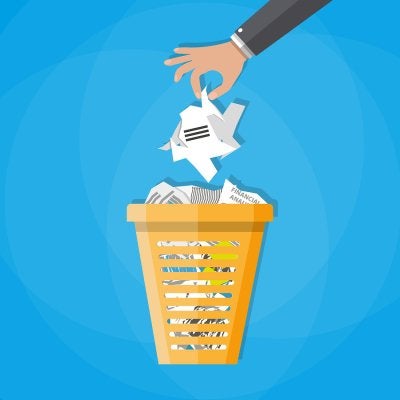
What is a carbon footprint?
A simple way to think of your company’s carbon footprint is the sum of everything it does that impacts climate change. In many cases, a carbon footprint is calculated by creating an estimate of the total CO2 and other greenhouse gas emissions produced by your company’s operation. Once the numbers are added up, they are expressed as in what’s called a carbon dioxide equivalent, which represents how much CO2 would cause the same amount of warming.
How is a carbon footprint calculated?
To gain an understanding of where your company currently stands as far as its carbon footprint is concerned, you can hire an expert to come in and perform an assessment. To gather the information needed for calculating your business’s carbon footprint, the evaluator will add up as many emissions pathways as is feasible. Some examples of pathways include how much power is required to run your buildings each day, the amount of transportation needed for shipping products to or from your company, and the level of emissions generated by cooling or heating your business.
How can I reduce my company’s carbon footprint?
To make a dent in your company’s carbon footprint, start by having it calculated, so you know what areas to address. Also, setting up a recycling system is one of the simplest ways in which you can reduce your company’s negative impact on the environment. By placing metal, plastic, and cardboard recycling bins in your office or building, you can implement better waste management practices in a way that’s easy to use and maintain. A few other methods to consider are upgrading your company’s light bulbs to LEDs, encouraging working from home for employees, and getting your team in the habit of turning off electronics and lights when they aren’t in use.
-
Understanding Paper Recycling
If you have recently implemented a recycling program for your company, you may be interested in learning more about paper recycling in Atlanta . Any paper waste that your company generates can be collected in recycling bins, picked up by your waste management company during your regular trash pickup, and sent to your local recycling center. This paper is then sorted, cleaned, and graded at the recycling center, and is then sent to a paper mill.
Watch this video to learn more about the paper recycling process. After recyclable paper is sent to a paper mill, it is turned into pulp, and any non-recyclable elements, such as staples, are removed. It may then be bleached. Recycled paper may be turned back into cardboard, paper, glass, cans, food and drink cartons, plastic bottles, or clear sacks.
-
Spotlight on Sustainability
Sustainability is a key concern for many of today’s business. When you are researching sustainable practices for your company, you may want to take the time to gather information about waste management and recycling. By updating your trash removal practices with help from a company offering recycling bins in Atlanta , you will feel great knowing that your business is operating in a sustainable and environmentally friendly fashion.
There are several ways that recycling can boost your sustainability. A recycled item will be reused for a new purpose, thereby helping to reduce the carbon emissions and consumption of natural resources that are associated with creating products from all new materials. Recycling can also cut back on the amount of debris and waste that you are tossing in your dumpster. Implementing a recycling program can also place sustainability at the forefront of your business identity. A recycling center can provide you with additional information about the sustainable benefits of recycling.
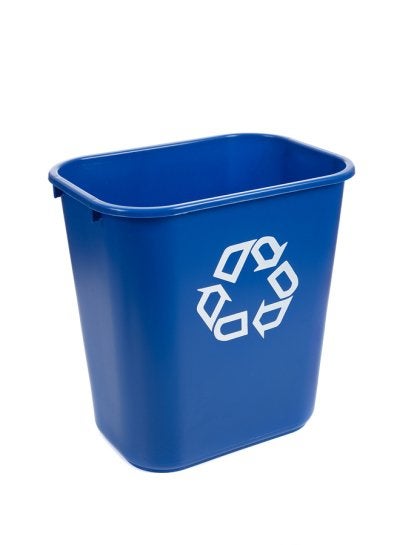
-
How to Identify the Recyclable Items in Your Workplace
Workplace recycling programs are a simple and effective way to reduce a company’s waste generation and carbon footprint. It’s common for people to want to do their part and recycle near Atlanta but, in many cases, they aren’t certain about what materials are supposed to go in the recycling bins .
The first step in identifying what items in your workplace are recyclable is to take a closer look at the recycling bins. Many establishments post a guide either on or near the bin to help employees recycle effectively. Also, pay attention to the color of the bin. Your workplace may have separate bins for compost, metal, cardboard, paper, or plastic recycling.
If your recycling bins offer no guidance about what should go inside of them, speak with an employee who works with the recycling program or contact the company that handles the recycling for your workplace. Some of the most common recyclable materials you might find yourself disposing of are paper, cardboard boxes, plastic bottles, aluminum cans, and plastic containers.
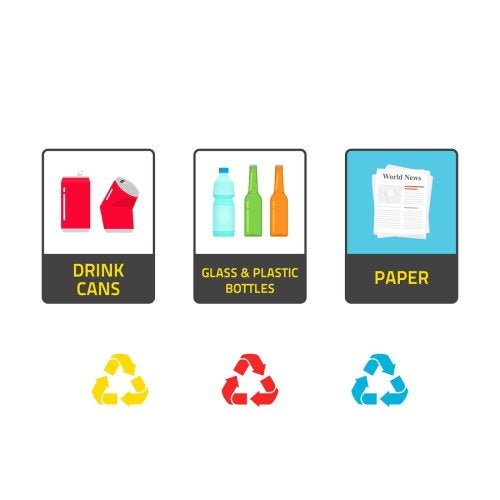
-
Universal Waste Recycling: Get the Facts
When people have fluorescent bulbs or electronics to dispose of, they may not realize that these objects do not belong in landfills. Universal waste recycling serving Atlanta offers manufacturers and businesses a way to properly dispose of a variety of hazardous materials.

The Nature of Universal Waste Recycling
The EPA’s universal waste program promotes the responsible collection and recycling of particular types of waste that contain certain hazardous materials. The program helps ensure that fewer of these materials end up in landfills where they are unregulated and can contaminate the environment.
The Importance of Universal Waste Recycling
Universal waste recycling systems make it easier for consumers and retailers to dispose of and transport these materials. Universal waste recycling is designed to streamline the waste disposal management standards for certain types of materials. These programs help to protect the local population and wildlife from the harmful effects that improper hazardous waste disposal may cause. When you choose to properly discard universal waste materials, you help keep toxins like mercury from leaking into the ecosystem. Additionally, because the mercury inside these objects can frequently be recycled and reused, this prevents the need for obtaining as many new resources from the environment.
The Guidelines for Universal Waste Recycling
The universal waste program applies to four types of waste: pesticides, batteries, mercury lamps, and mercury-containing equipment. Companies that participate in the program can be either small or large quantity handlers of universal waste, universal waste transporters, or universal waste destination facilities.
The Use of Universal Waste Recycling
By knowing the importance of proper waste disposal, you can help do your part to protect the environment and your community. Consumers, businesses, manufacturers, distributors, and retailers should all be aware of the strict guidelines that are in place for the disposal of hazardous materials and seek the necessary means for their disposal. To learn more about the universal waste regulations for your area , you can visit the Environmental Protection Agency’s website.
-
Understanding the Impact of Plastic Bottle Recycling
Even if you regularly recycle near Atlanta , you may sometimes find yourself without a recycling bin nearby. Plastic bottles are among the fastest growing components of the municipal waste in America, and tossing them in the trash can have a significant impact. Watch this video to learn about the impact of plastic bottle recycling.
The Environmental Protection Agency estimates that as much as 12% of all the solid waste in the United States is plastic products. Luckily, most plastic bottles are made of a material that is easy to recycle and reuse. The plastic recycling process saves a significant amount of resources and energy compared to acquiring and processing the materials needed to make a new bottle.
-
Why Recycling Benefits Small Businesses
Recycling is a top priority for many small businesses around the world. By implementing a recycling program for your small business, you will be able to reduce your waste, while also providing you with cost savings. In fact, picking up recycling bins is typically offered at a lower cost than junk removal or other services. With proper cardboard recycling and other recycling measures, you can dramatically cut down on your overall waste management costs. A company that offers recycling serving Atlanta can provide you with more information about the benefits of recycling. To learn more about how recycling benefits small businesses, check out this video.
RECENT POSTS
categories
- Uncategorized
- Waste Management Atlanta
- Waste Disposal and Recycling
- Hazardous Waste Disposal
- Chemical waste removal
- solid waste removal
- R3 Program
- Sustainable Organizations
- Sustainable Waste Removal
- Commercial Waste Removal
- Materials Management Program
- Dumpster Rental
- Roll Off Dumpsters
- Construction Site Waste Removal
- Sustainability
- Recycling in Atlanta
- Industrial Recycling
- Industrial Waste Removal Services
- Southern Waste & Recycling
- Waste Removal Atlanta
- Waste Specialists
- Atlanta
- Infographic
- Front Load Dumpsters
- Rear Load Dumpsters
- Reusable Electronics
- Dump Truck Atlanta
- Recyclable Electronics
- Trash Compactors
- Recycling
- Recycling Program
- Office Recycling
- Metal Recycle
- Electronic Waste
